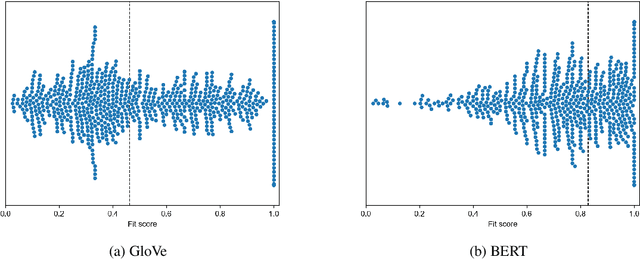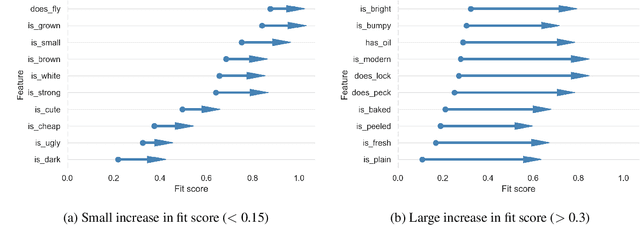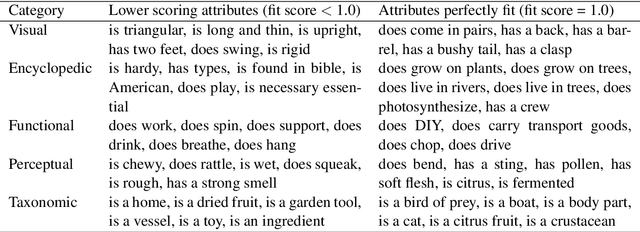Cracking the Contextual Commonsense Code: Understanding Commonsense Reasoning Aptitude of Deep Contextual Representations
Paper and Code
Oct 04, 2019



Pretrained deep contextual representations have advanced the state-of-the-art on various commonsense NLP tasks, but we lack a concrete understanding of the capability of these models. Thus, we investigate and challenge several aspects of BERT's commonsense representation abilities. First, we probe BERT's ability to classify various object attributes, demonstrating that BERT shows a strong ability in encoding various commonsense features in its embedding space, but is still deficient in many areas. Next, we show that, by augmenting BERT's pretraining data with additional data related to the deficient attributes, we are able to improve performance on a downstream commonsense reasoning task while using a minimal amount of data. Finally, we develop a method of fine-tuning knowledge graphs embeddings alongside BERT and show the continued importance of explicit knowledge graphs.
 Add to Chrome
Add to Chrome Add to Firefox
Add to Firefox Add to Edge
Add to Edge